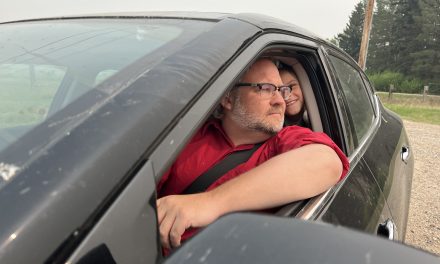By Jon Thompson
They’ll be serving fish at Shelter House on Christmas Eve.
There’s no volunteer moment like it. The traditions we carry through the year’s darkest days bring out compassion like no other time. A week later, the city with the giant heart will step up again for the turkey feast on New Year’s Eve. Some will give year round, but many who dip in through December tend to dip out at New Year’s. It’s fleeting, the spirit of this season.
Come January, we’ll have a new city council, one elected from a fall campaign focused on helping those who need it most. The public forums were dominated by the bundle of systemic dysfunction we call “social issues,” encompassing homelessness, mental health, the poisonous illicit drug supply, crime, and public safety.
Conflating the swelling number of people forced to live outdoors with gun violence and everything in between might be an indication that we don’t all agree on the problem, but elections are for solutions. Candidates promised miracles on “social issues,” from reopening the Lakehead Psychiatric Hospital (which the city doesn’t own) to looting the provincial government for police and/or social services funding. If there was a visionary among them, their message didn’t connect with voters.
The ballots hadn’t even been counted before efforts to temper expectations began. City manager Norm Gale appeared on televised election coverage to remind the public that “social issues” are not the municipality’s responsibility. The front-page newspaper story the following day announced Ken Boshcoff had been elected mayor without really having promised anything. It was a record-scratch end to a hopeful—if ambitious—campaign, and we barely missed a beat before the austerity song came on.
City administration will have to, “do more with less,” Boshcoff says. He hopes to hold regional meetings over new data that shows the poor are urbanizing into Thunder Bay. He also intends to gather social agencies in January on a suspicion that services are being duplicated. It’s a tone that foreshadows managing problems rather than solving them, but the next Thunder Bay council will face a storm far greater than its ability to control.
The federal and provincial governments are dealing most of the cards, and the realistic hand council is playing until 2026 is not falling further behind. The highest inflation rate in four decades guarantees northern towns will lose more ground on our infrastructure deficits. Replacing the most urgent liabilities will be an exercise in triage. The unions will be hungry to limit their members’ falling living standard and a sizeable bill is being arranged that will promise to bring competent policing to this town.
The “plan” many espoused during the campaign to get Toronto and Ottawa to bail out Thunder Bay is not in those cards. Instead, the federal government is deliberately triggering an economic slump to rein in inflation over the next two years. Higher borrowing rates will limit growth and sustained high unemployment will curb consumption, particularly afflicting the working class.
To absorb that blow, Ontario is foisting a 1.5-million-unit housing construction boom on 29 municipalities, none of which are northern. Thunder Bay’s long-standing, near-zero growth may slip into recession, which will put pressure on the residential property tax base, all while homeowners are seeing rising mortgage rates. How deep the local slump goes will depend on whether the economy can sustain demand for mineral resources. Boshcoff is betting the mining sector can carry us through.
This is all consistent with the recommendations of the International Monetary Fund. If we’re predicting how Canada might support those whose plight dominated our municipal election conversation, the IMF’s suggestion is, “while some space could be made for limited and highly targeted programs to buffer vulnerable households from high fuel and food prices, more generalized spending increases should be avoided as not to undercut monetary policy.”
It’s hard to hear, especially in this season when we gather to wish each other peace on Earth, but the help Thunder Bay needs is not coming.
Council can aim scant resources to reduce harm at the points of greatest impact. If the rest of us can find a moment to step away from the bustle and reflect on how this season makes us feel like we can give more of our humanity, and if we can capture it and recall it when it needs us, we can use this time to help people directly and build community. “Social issues” is abstract but the more engaged we are, and the more we see needs and people instead of problems, the better equipped we’ll be to demand the changes we need.
There’s biblical poetry in having to make fish and loaves go further for the hungry in hard times, but we can’t wait for a miracle. Elections don’t make leaders, leadership does. The rest will follow.















